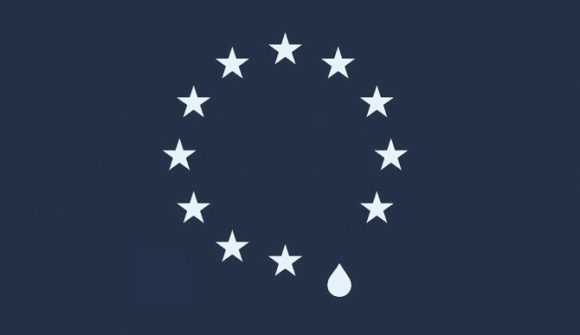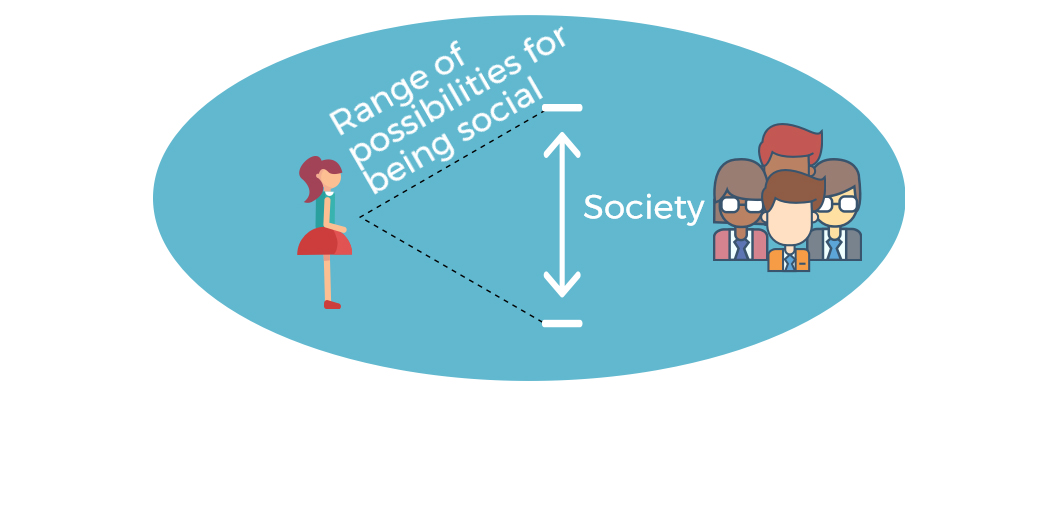Adnan Muminovic (MSc Psychology of Economic Life) picks apart the bedrock of traditional economic theory Homo economicus to show that we have flourished not because we are selfish and rational, but because we are motivated by the need for love, belonging, self-esteem, recognition and ultimately self-fulfillment.
It has now been a few decades since we have started waving goodbye to Homo economicus. It’s high time we start going separate ways.
For decades now, traditional economics has been built on the shoulders of a mythical species called Homo economicus — a self-interested individual with the ability to make any number of rational decisions. This wouldn’t be a huge problem if it wasn’t for economics’ dominant role in the social sciences and the significant impact it has had on policy-makers, journalists and the general public.
It has had a disproportionate say in how we look at people, make sense of their motives and analyse their behaviour; economic models have been used to predict behaviour and analyse social issues ranging from crime, racial discrimination and all the way to human relationships. Gary Becker even went so far as to consider marriage a cost-benefit analysis of two individuals trying to maximise their welfare, thus completely de-romanticising love and stripping it of all its beauty and magic. Furthermore, the fact that economics is the only of the social sciences considered worthy of a Nobel Prize didn’t really help in instilling humility into the discipline.
Studies show that neoclassical teaching of economics makes people less moral and more antisocial. What’s worse, as noted by Paul Collier in The Future of Capitalism, other important thinkers that have influenced the field such as Jeremy Bentham and John Stuart Mill were more antisocial individuals than moral giants. Just take this simple finding reported by Richard Thaler: Asked whether it is acceptable for a store to raise the price of its shovels after a large snowstorm, most people consider this to be unfair. The exception? You guessed it, MBA students.
You don’t have to be a great intellectual, or a particularly honest and clear-sighted individual to acknowledge that people are neither fully rational, nor completely selfish, so it’s worth asking how such a narrow and clearly superficial view came to be so influential? The reason, which might surprise you, has simply to do with convenience. Following the unfortunate mathematisation of economics that started sometime after the Second World War, it was simply easier to build models with rational agents than to deal with quasi-rational and emotional people. Just pause for a moment and think about how outrageous this is. It’s as if the clothing industry assumed that all people in the world are skinny and 6-foot tall because it is, well, easier and more convenient to produce clothes that way.
There also seems to be another reason, which has to do with arguably one of the most famous ideas in economic history. In the Wealth of Nations, Adam Smith observed how by pursing their own interest, the butcher, the brewer, or the baker simultaneously end up making everyone else better off. Never mind that Smith had so much more to say about the complexity of human nature, it was this idea that stuck and proved to be influential. Most importantly, it provided the moral license to be selfish — not only were individuals allowed to be self-interested, but by behaving in this way, they miraculously also seemed to promote the common good.
Luckily, however, we are not selfish and our ability to detect inequality seems to have an evolutionary origin. The undoing of the self-interest model in economics began with the famous ultimatum game in which people show anger at greed and an actual desire to punish unfair behaviour. What researchers found was that individuals largely played fair, rather than try to harm the other participant. Studies have shown that some animals such as Capuchin monkeys and chimpanzees, as well as dogs respond negatively to inequitable outcomes. Children aged 12 to 18 months appear to be sensitive to unfair distribution.
And yes, even Adam Smith saw in the restraint of our selfishness and pursuit of benevolent feelings the perfection of human nature.
How about our alleged rationality? All it took were two brilliant Israeli psychologists and a few clever experiments to prove that this is simply not to case. We are emotional and biased beings, who often rely on a number of heuristics that, despite being useful, sometimes lead to systemic and significant mistakes.
The fact that we are emotional doesn’t necessarily mean that we are irrational though. Owing to Antonio Damasio, we know that emotions possess a special intelligence and play a crucial role in decision-making. Evolutionary speaking, it was our emotions that allowed us to make quick and efficient responses and therefore survive. In Skin in the Game, Nassim Taleb notes that anything that hinders one’s survival should be deemed irrational, period. Yet, at least since Maslow, we know that we strive for more than just survival. We are motivated by the need for love, belonging, self-esteem, recognition and ultimately self-actualisation,
In a recent book on Why Culture Matters Most?, David Rose showed how cooperation and a culture of mutual trust allowed us to achieve what he calls mass flourishing. Being cooperative — even at a high personal cost — has been shown to make us more trustworthy and more desirable friends, partners and allies. The philosopher David Schmidtz noted that by departing from rationality and pure self-regard, we expand the reasons we have to live for, thereby improving the quality our lives.
We have been able to survive, prosper and flourish not because we were selfish and rational, but precisely because we have been emotional. It turns out that the only thing that is unsustainable and irrational is actually to be economically rational.
It has now been a few decades since we have started waving goodbye to Homo economicus. It’s high time we start going separate ways.
____
References:
Becker, G. S. (1993). Nobel Lecture: The Economic Way of Looking at Behavior. Journal of Political Economy, 101(3), 385–409.
Brosnan, S. F., & de Waal, F. B. M. (2003). Monkeys reject unequal pay. Nature, 425(6955), 297–299.
Brosnan, S. F., Talbot, C., Ahlgren, M., Lambeth, S. P., & Schapiro, S. J. (2010). Mechanisms underlying responses to inequitable outcomes in chimpanzees, Pan troglodytes. Animal Behaviour, 79(6), 1229–1237.
Etzioni, A. (2015). The Moral Effects of Economic Teaching. Sociological Forum, 30(1), 228–233.
Geraci, A., & Surian, L. (2011). The developmental roots of fairness: Infants’ reactions to equal and unequal distributions of resources: Evaluation of fairness of distributive actions. Developmental Science, 14(5), 1012–1020.
Güth, W., Schmittberger, R., & Schwarze, B. (1982). An experimental analysis of ultimatum bargaining. Journal of Economic Behavior & Organization, Elsevier, vol. 3(4), 367–388.
Reimann, M., & Bechara, A. (2010). The somatic marker framework as a neurological theory of decision-making: Review, conceptual comparisons, and future neuroeconomics research. Journal of Economic Psychology, 31(5), 767-776.
Schmidtz, D. (1993). Reasons for Altruism. Social Philosophy and Policy, 10(1), 52–68.
Thaler, R. H. (2015). Misbehaving: The Making of Behavioural Economics. London, England: Penguin UK.




